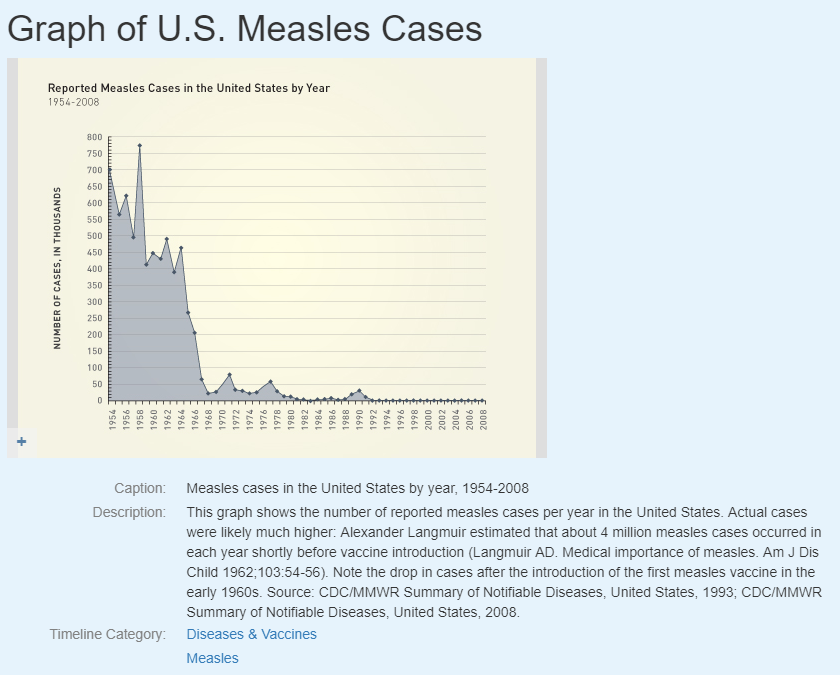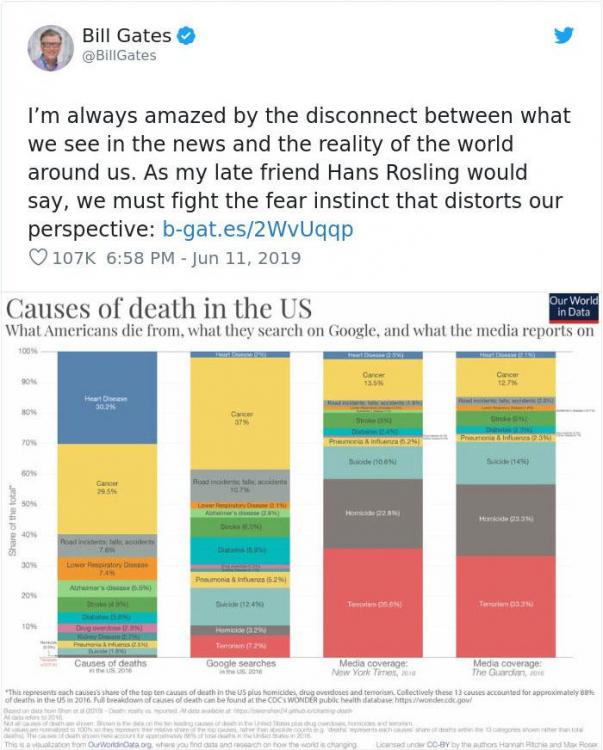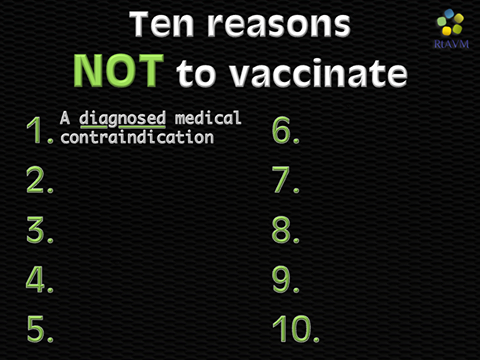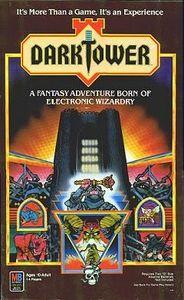Leaderboard
Popular Content
Showing content with the highest reputation on 06/19/19 in all areas
-

In praise of LDS Obiwan Kenobis
NeuroTypical and 4 others reacted to Vort for a topic
I have already openly admitted that I'm no Star Wars geek. I thoroughly expect to get corrected over my numerous mischaracterizations that I will doubtless make in this post. Bring it on. But while bringing it on, try to understand the point I'm driving at. From my viewing of the Star Wars movies, I come away with the impression that Obiwan Kenobi is the, how shall I say this, least naturally gifted of the Jedi masters. Like, Evar. He doesn't exhibit the raw heroism of his trainer Kwangai Jin or whatever his name was. He is not a thousand-year-old pint-sized superhero like Yoda. He is not The Chosen One® with a mitochondrial count of well over nine thousand. He is not a super-duper light saber master, like the dude with the horns. He is not a master of strategy. He's...vanilla. Obiwan is the twenty-year black belt of the Jedi, someone who worked diligently and put in his time. Obiwan appeared not to excel at anything; he only beat his barely-adult The Chosen One trainee in mortal combat because of Anakin's immense ego and refusal to, you know, try to actually secure the high ground before attacking. If Obiwan has any extraordinary powers, it's the power of taking blame on himself where it properly belongs to others. He warned Kwaigon Jin about Anakin, but Jin had to train him, anyway. He volunteered to continue Anakin's training after Jin was killed, and—surprise!—the immensely wise yet stupid Yoda and the (as far as I can tell) completely useless Mace Windu combined with the rest of the superwise yet idiotic Jedi Council to allow it. Like that was Obiwan's fault. And then when to the surprise of exactly no one, Anakin turned out to be an incorrigible and corrupt [censored] canoe, somehow that's Obiwan's fault. So what does he do, this Jedi Master who is himself only just barely coming into his prime? Easy. He spends the rest of his life living alone on a barren desert planet so that when D. Canoe's son reaches maturity (having inherited not only his father's mitochondrial count—how exactly does that work?—but also a good deal of his winning personality—"But Uncle Owen! I wanted to go into TOOOOOOWN with my FRIEEEEEEENDS and get some POOOOOOOWER CONVERTERS!" "Shut up, Luke. We both know you don't have any friends"), Obiwan can guide him in the ways of the Force. That's like 20 years in the Sahara, just, you know, waiting around. Let's face it, if Obiwan was (to be generous) 35 when he went into hermitage, that would make him no more than mid-50s when he found Luke. Maybe it's just me, but I don't think those 20 years were kind to Obiwan. Alec Guinness was a handsome man, but he didn't look no 55. And then, when it came down to it, fighting an opponent that he knew full well he had no chance of defeating like he did before (get it? De-feet-ing? I crack myself up), Obiwan, always the noble soul, willingly sacrificed himself so that DC Jr. can get away. Honestly, I respect that a whole lot more than Superdwarf Yoda, and certainly more than The Chosen One® or his whiney son, TCO® Jr. In LDS terms, I'm thinking that Obiwan is the guy who quietly served a mission, not to a South American country where he baptized ten thousand or to an exotic east Asian or European nation, but to, I don't know, Arkansas. Or Boise. And he wasn't the AP, or a zone leader. He was just a missionary. He tried hard, had some limited success, and came home. He tries to live his life well. He is not the stake president or the bishop, or maybe not even the elders quorum president. He's just a guy. The scoutmaster, though the boys didn't flock to him, because he wasn't a natural. But he soldiered on and took the boys out every month for a campout, even when only two went. Maybe the ward mission leader, or more likely "just" a ward missionary. Makes the occasional comment in gospel doctrine or quorum, but doesn't really talk a lot about himself. Did his home teaching, and works on being a good ministering brother. He's not necessarily the best-known or most "popular" guy in the ward, and may not even be much known in the stake outside his own ward. But those who know him well respect him. When he dies, he won't set a record for funeral attendance, but those who attend will know he was someone special, and will offer their thanks for his life. Obiwan is my hero.5 points -

The Trials That Don’t Go Away
SilentOne and 4 others reacted to Just_A_Guy for a topic
An interesting article. One other tangent that occurred to me: —Breakfast at Tiffany’s, stripped of its 1960s charm, is basically a morally despicable movie about morally despicable people. —The Good Place (one of whose characters is cited in the article) is basically a show about morally despicable people doing and/or trying to get away with morally despicable things. —Several of the Beatles (authors of the song Blackbird) were/are morally despicable people whose lives are not to be emulated in any meaningful way. I wouldn’t blame anyone for being a product of the culture in which they were raised. But, when are we going to look at the connection between the apparently increasing problem of depression/spiritual ennui, and the utter moral/spiritual bankruptcy that pervades our popular culture? When are we going to liberate ourselves from mental and emotional servitude to the paragons of personal and relational dysfunction who are writing our movies and our music and our literature; and tell them to shove their nihilism and libertinism somewhere that the sun don’t shine? Could it be that, once we work a little harder to break our residual ties with Babylon, we’ll find that the age-old techniques of Zion Memorial Hospital are even more effective than we’d ever thought possible?5 points -

The Trials That Don’t Go Away
Vort and 3 others reacted to Just_A_Guy for a topic
I think you about had it—though (once the media is old enough) there is perhaps a distinction to be made between the moral character of the individuals who happened to create the media, versus the mores openly espoused within the media itself. I really don’t know enough about the lives of Beethoven and Mozart to weigh in on their personal virtues or vices. But for the purposes of this discussion, I haven’t seen anyone write a column about their ongoing struggles with depression and openly acknowledge that Beethoven and Mozart have been (and/or ought to be) highly influential in the way they have approached the problem. We have known for hundreds of years that certain attitudes and behaviors just plain don’t work, from a sociological/happiness perspective. Then we find those attitudes and behaviors spreading, our culture doesn’t work as well as it used to, people aren’t happy, and we all say “golly gee willikers, maybe we can fix this by re-engineering the way our forbears approached the Gospel.” Well, maybe. Or, maybe we could start taking all those scriptures about “fleeing Babylon” at face value; and then see if that doesn’t start making a dent in our woes.4 points -

The Trials That Don’t Go Away
The Folk Prophet and 2 others reacted to Vort for a topic
I want to remember and use this word, but will probably forget it tomorrow and will be a word on the tip of my tongue at some point. Ennui is French for "boredom", and it has that basic connotation in English. Ennui is a restlessness, a deep dissatisfaction with one's condition, about which one can seemingly do but little. It's actually intimately related to boredom. If we suffer from spiritual ennui, the likeliest cause is that we're spiritually flabby and out of shape. We're probably spending our time "nourishing" our spirits with the so-called entertainment of Babylon and adopting Babylon's foolish, short-sighted ideas as our own to champion. The solution to spiritual ennui is always the same: Come out of Babylon and gather to Zion. Since Elder Uchtdorf introduced us to Weltschmerz a General Conference or two ago, here's an article to help you decide whether you're suffering from angst, ennui, or Weltschmerz. Good luck, soldier!3 points -

vaccines at the intersection of religious liberty and public health
MrShorty and 2 others reacted to MarginOfError for a topic
And for the record, Satan's platform was not "mandatory compliance." It was more like "Only one option to choose." While those have the same outcome, they are not the same premise. The dispute at hand is whether and where it is moral to impose on one's ability to choose. Generally speaking, I don't have much problem making such impositions when your misguided and boneheaded decisions will negate my own well informed and responsible decisions (and because I don't intend this to be personal, I will state that goes both ways). This is why I question mandatory seat belt laws for adults--an adult that doesn't wear a seat belt injures himself only. But I don't have any problem with public smoking bans; I shouldn't have to be ill because someone else is being a dope. Because of issues of herd immunity and efficacy, vaccinations of communicable diseases fall more along the lines of the smoking ban than they do the seat belt ban. (Where HPV and flu vaccines fit in there is an interesting debate, to which I haven't really committed to a side as far as compliance. But I think that, barring health reasons, people are selfish fools not to avail themselves of them). But I'm open to the idea of accountability for choices. As a compromise, I propose that vaccinated citizens pay the medical costs of all people who contract measles from a vaccinated person, while unvaccinated citizens pay the medical costs of all those who contract measles from an unvaccinated person.3 points -
So the widows and orphans of the idiot who doesn't buckle up or rides a motorcycle without a helmet should not be allowed a full draw on government benefits? Because if we're going to allow such personal decisions, we must also allow the consequences of such personal decisions.2 points
-

The Trials That Don’t Go Away
carlimac and one other reacted to NeuroTypical for a topic
Well, some brain things are like losing a leg (or being born without one), and other brain things are like breaking a bone and healing. Figuring out which one is at play may be easy, or it may involve guesswork. A shrink specializing in mood disorders I knew back in the '90's, once shared with me a little about what private practice was like. He said he had two main types of clients. One type needed help "leveling the playing field", so they could get their misfiring brain to work enough like everyone else's, so the odds of just being a human on planet earth weren't stacked against them. The other type would come in and complain about being sunburned, and he'd treat the sunburn and work with them to develop plans to stay out of the dang sun so they wouldn't get sunburned so often.2 points -

vaccines at the intersection of religious liberty and public health
Midwest LDS and one other reacted to MarginOfError for a topic
My point is that it is relatively rare for people in the U.S. not to engage in some kind of sexual activity prior to marriage. Even if we succeed in convincing one person to remain chaste until marriage, the doesn't mean the eventual chosen partner has. While that likelihood may increase if marriage is restricted to within the same faith community, it is no guarantee. Conversion, repentance, and divorce are situations in which a person may be on the marriage market after having had sexual partner(s). Thus, the recommendation is to get vaccinated. With sufficiently broad vaccination over a generation or two that 60% of adults fact is likely to fall dramatically. To put it in more personal terms, having my daughter get the HPV vaccine protects her against cervical cancers that may be a consequence of the sexual behaviors of her eventual husband, not of her own. (especially since he may have no idea if he has contracted HPV previously)2 points -

vaccines at the intersection of religious liberty and public health
Midwest LDS and one other reacted to MarginOfError for a topic
Sure. In the same vein that 3.8 per 1,000 Americans are killed in car crashes every year. Again, and I really can't stress this enough, because you don't seem to get it Measles in 2019 kills at 40 times the rate it did BEFORE WE HAD A VACCINE FOR IT Compare it to whatever non-communicable disease for which we have no vaccine all you like. The fact remains WE HAVE A FRICKIN' VACCINE And it still is killing at a greater rate than it was before there was a vaccine. That's a problem worth a little hysteria.2 points -

vaccines at the intersection of religious liberty and public health
Midwest LDS and one other reacted to MarginOfError for a topic
Okay, I'l bite We've established that the mortality rate for measles is 4 in 1,000 cases. Now, let's establish the number of cases of heart disease. It is estimated that about half of US adults have heart disease. Now let's take a US population of 327,000,000, and assume one third of those are not adults. That leaves us with 215,820,000 adults. Half of those have heart disease, or 107,910,000 adults with heart disease. Using that as the denominator with 600,000 as the numerator produces an estimate of 5.5 deaths per 1,000 cases. So you're right, heart disease is a bigger problem by both magnitude and by rate. But the piece that you're leaving out is that we don't have a vaccine for heart disease!!! We have a vaccine for Measles, and it could theoretically be eradicated. I'll also point out that measles has a tendency to kill the young. 66% of heart disease deaths occur after the age of 75. I know that 70 is supposed to be the new 40 or something like that, but let's face it--75 is kind of old Lastly, what the flip do you mean there's no hysteria about diabetes, smoking, obesity, or high blood pressure. We have an entire industry built up around "fitness" and "wellness." We spent billions on a 30 year campaign to keep kids from smoking that largely succeeded. We have a gazillion non-profits out there encouraging children to get outside and play. We have seen an incredible shift in school meal programs (at least in my area, but my understanding is that it was brought about my Michelle Obama's program) to provide more locally sourced, fresh, healthier food in our school systems to help teach children about the importance of nutrition. And every time I go see my doctor I am bombarded with questions about diet, exercise, preventing high blood pressure and diabetes. I get a lot more exposure to preventing those conditions in my life than I do about measles. It just comes pretty consistently, so doesn't appear to be as sensational.2 points -

vaccines at the intersection of religious liberty and public health
elfgirlkaname and one other reacted to Just_A_Guy for a topic
I wonder whether the folks who would have no problem imprisoning or terminating the rights of a parent who won’t vaccinate a daughter against HPV; would be OK with similarly harsh legal measures against a person who actually spreads HPV via sexual promiscuity?2 points -

vaccines at the intersection of religious liberty and public health
NeuroTypical and one other reacted to MarginOfError for a topic
Lastly, I am a statistician (Master's degree in Biostatistics, to be precise), and as someone who grew up very skeptical of vaccines, I poured a lot of hours into reading the peer reviewed research on this topic before choosing to vaccinate my children. The research is sound. The ethics are sound. The statistics are sound. Are there individuals who suffer from vaccination? Without question. But you also have to recognize vaccines are developed, tested, and validated on a sample numbering in the thousands. For a really big trial, it may go as far as tens of thousands. And then we scale those results by expanding their use into a population numbering in the hundreds of millions. We're going to find some outliers. And yes, some people will be injured. It's tragic, and unfortunate. But it is not a reason to suspend vaccination. In fact, the only hope we have of learning how to identify those that are susceptible to injury is to continue the program. I get that this sounds heartless, but consider this (true) case study. There have been two girls in the United States that have died after receiving the HPV vaccine. Anti-HPV vaccine proponents have declared this as sufficient cause to terminate HPV vaccinations, because even one death is too many. That's a lovely sentiment, and I agree that one death is too many. But let's also consider that literally millions of girls have received the HPV vaccine. So the probability that any one girl will be killed by it is less than one in a million. What's more, if the estimates hold that the HPV vaccine will prevent 2,000 cervical cancer deaths per year, then in the past ten years, we will have prevented 20,000 cervical cancer deaths. That puts us in this great bind place of "one death is too many," but apparently we're okay losing the other 20,000? Most often, when people rail against these kinds of health policy ideas, it comes down to "fear of the new thing" and "fear of it happening to me or someone I know." You have my empathy. You really truly do. I have those same fears. yet I will continue to advocate that health policy is best debated and discussed as a matter of cold-hearted statistics where the chosen policy should reflect what is best for the population, not the individual.2 points -

vaccines at the intersection of religious liberty and public health
NeuroTypical and one other reacted to MarginOfError for a topic
Um, 11 deaths out of 2,671 cases. Or about 4.1 deaths per 1,000 cases. Now consider that by 1962 (before the measles vaccine was developed), the mortality rate was about 1 per 10,000 cases. Let me put those in the same units 1959 - 1962: 1 per 10,000 cases 2000 - 2019: 41 per 10,000 cases And mind you, this is a disease that was declared eliminated in 2000--and we are worse off now than we were sixty years ago! The major difference is that we are looking at 2,671 cases in the modern era compared to 4 million cases in the 1959-1962 era. Largely due to vaccination. Perhaps a little hysteria is warranted. https://physiciansforinformedconsent.org/measles/dis2 points -

vaccines at the intersection of religious liberty and public health
MrShorty and one other reacted to MarginOfError for a topic
This probably isn't true anymore. It is estimated that somewhere between 65 and 70% of adults have some form of HPV. Remember, many of them are asymptomatic. Note also that, at least in the U.S., more than 95% of people will have penetrative sex before they are married. 50% will have had sex before the age of 17. The mean number of sexual partners for Americans is 7.2. While I appreciate the point you are trying to make, public health decisions need to operate in the world in which we live, not the world in which we wish to live.2 points -

The Trials That Don’t Go Away
SilentOne and one other reacted to The Folk Prophet for a topic
If someone gets a leg cut off and then discusses overcoming that trial no one thinks the discussion is about regrowing the leg. It's always been strange to me that people talk about mental and emotional trials that way though. Like overcoming anxiety means you no longer have anxiety issues. If you have a missing leg you have a missing leg. But you can, without a doubt, overcome that trial.2 points -

Alex Boye' has the right advice
Midwest LDS reacted to Emmanuel Goldstein for a topic
Amen to what he shares: https://www.eastidahonews.com/2019/06/alex-boye-reveals-how-he-overcame-a-major-pornography-problem/?fbclid=IwAR3T-1g85wAOCRhZCCPyqCBVTnKMeXri7KO3KgvSJJO86h5YFHQneC7ICmc1 point -

The Trials That Don’t Go Away
SilentOne reacted to Just_A_Guy for a topic
It’s not a matter of condemning her, or making her out to be a terrible person. It’s a matter of learning from her experiences, which I presume is why she (quite bravely) put them out there for public consumption. Its a matter of pointing out that from an objective standpoint, there’s stuff that hurts and stuff that heals. The Beatles, on the whole, does not heal—it hurts. Breakfast at Tiffany’s does not heal—it hurts. The Good Place does not heal—it hurts. The Atonement is powerful. But it should be noted that it wouldn’t have to be so powerful, if we all didn’t run around cavalierly engaging in stuff that so potently undermines the changes that the Atonement was designed to effect.1 point -

The Trials That Don’t Go Away
SilentOne reacted to Just_A_Guy for a topic
I don’t believe I said it would completely fix the problem, Amy. Nor did I say that it was the exclusive cause of the problem. Nor did I state that anxiety is not a bona fide psychological problem potentially warranting therapeutic intervention. I did, however, fully intend to suggest that modern Babylon exacerbates the situation in ways we are frankly unwilling to acknowledge; and that it is incongruous to expect full healing while remaining steeped in Babylonish attitudes and practices. And I stand by that. Whatever cultural vices Sister Ransom may have forsaken during her mission—she apparently went right back to seeking at least some of them out, once she got home. Indeed, she wrote an article describing her choice to seek solace in a Beatles song rather than Church; and lionizing two frankly degenerate shows as a source of resolution to her problems, rather acknowledging them as at best an exacerbating factor in her spiritual challenges. (“You know, I was watching this porn flick the other day, and the pizza delivery guy character said something I found incredibly thought-provoking in the context of this week’s priesthood lesson about strengthening our marriages . . .”) There are challenges that stay with us because that’s the nature of the challenge. But there are also challenges that stay with us merely because we aren’t willing to pay the price it would take to be well and truly rid of them. Until we’ve laid everything on the altar to try to make those challenges disappear—including resolving to permanently lay aside trash cultural icons like those mentioned in the article—we probably won’t be well-served by suggesting that those challenges were divinely ordained to be insurmountable.1 point -
Pretty sure Jesus Christ was suffering from anxiety in Gethsemane. So it even occurs in Gods. As we overcome challenges and become educated, strengthened both physically and spiritually our fortitude to resist anxiety increases. But there is always more out there. We have to recognize that we have to co-exist with anxiety and have faith that we can overcome situations with personal strength and providence. Heavenly Father sent Michael to strengthen Jesus Christ while in Gethsemane. God is aware of our anxiety.1 point
-

vaccines at the intersection of religious liberty and public health
Midwest LDS reacted to MarginOfError for a topic
Woah, hold on there...let's look at what you had said that prompted that response: There's nothing in there about government mandated compliance, choice, agency, or any such concept. To be honest, it reads as "meh, they were the weak ones who would have died anyway, so why should we care?"1 point -

vaccines at the intersection of religious liberty and public health
Midwest LDS reacted to MarginOfError for a topic
They may be looking at world wide cases. The math I presented only accounts for U.S. cases, and is pretty straightforward. Here's a better chart (provided on https://www.historyofvaccines.org/content/graph-us-measles-cases). The vaccine may not have contributed much to the reduction in mortality. But it certainly contributed to the reduction in cases. And there can be no measles-mortality without contracting measles (to say nothing of any of the complications and/or side effects it can bring). I wouldn't call this "small benefit"1 point -
I think you miss my point. This thread is about the government mandating vaccinations. There is a disconnect between reality, science / statistics, news reports, and legislation. I understand herd immunity and statistics. My kids are vaccinated for MMR. They will not be for HPV. And even as a medical professional I refuse the flu shot every year. It don’t work. Satan’s platform was mandatory compliance. I will continue to fight mandatory compliance whenever possible.1 point
-
Elisha, the primary author of this post, talks about struggling with anxiety since she was a very, very little girl — during a time when she probably watched "Mr. Roger's Neighborhood" rather than "Breakfast at Tiffany's," when "The Good Place" wasn't out, and when her music choices probably consisted mainly of primary songs. I don't think her lack of morality — or associating with people or things that are morally repugnant — was an issue at that point. She also talks about experiencing deep, debilitating anxiety on her mission, a time when you're completely separated from "Babylon." Similarly, she said nothing about the Church needing to reorient itself; instead, she focused on how Heavenly Father has helped her through her trials. Anxiety is a real, genuine brain disorder that needs to be treated through therapy and sometimes medicine — rather than pointing the finger at all the things you think she's doing wrong by associating herself with "bad" things, perhaps we could consider that she has a real, psychological problem that needs addressing and that simply changing what she watches on the television isn't going to fix the problem.1 point
-

vaccines at the intersection of religious liberty and public health
Midwest LDS reacted to MarginOfError for a topic
And for 60 years, the immuno-compromised have survived this disease because an aggressive vaccination program produced a large enough herd immunity that the disease was nearly eradicated. Our vaccination rate against measles has dipped to 91.1% and we're looking at over 1,000 cases this year already. The efficacy of these vaccination programs has a very small tolerance before the whole things starts coming off the rails. So, I'll repeat what you've said: Statistics are a great too, if you know or can interpret the numbers.1 point -

vaccines at the intersection of religious liberty and public health
Midwest LDS reacted to MarginOfError for a topic
Using these two sources, primarily https://physiciansforinformedconsent.org/measles/dis/ https://vaxopedia.org/2018/04/15/when-was-the-last-measles-death-in-the-united-states/ Taking a 1960 US Population of ~ 180 million and averaging out the US population to 325 million over the 2000 - 2018 time frame Excuse my use of Excel. It was convenient. Note that 1959 - 1962 represent the last few years since before the measles vaccine was introduced. By that point, it had reached a historical low in deaths without the aid of the vaccine. (What the vaccine did was prevent cases from developing) The CDC has confirmed over 1000 cases of measles in the U.S. this year alone. https://www.nbcnews.com/storyline/measles-outbreak/measles-cases-surpass-1-000-u-s-cdc-says-n10142611 point -

The Trials That Don’t Go Away
NeuroTypical reacted to The Folk Prophet for a topic
Honestly the analogy between the physical and the mental/emotional falls apart pretty quickly because they aren't, actually, analogous in most cases. Where they are analogous is when there is literally physical damage to the brain or endocrine system. But even that gets complicated1 point -

The Trials That Don’t Go Away
SilentOne reacted to The Folk Prophet for a topic
As for me, I don't think the moral character of an artist is relevant unless that moral character is known and thereby becomes an example. Moreover, I think there's a cultural difference between "rock star" idols and classical music composers in that kids who see some rock band partying might well choose to emulate that lifestyle (dress, language, ideals, etc), whereas someone who enjoys and studies classical music and may be aware that the composer was an adulterous drug user is probably less likely to be drawn into emulating that lifestyle. I also think there is a fairly large difference between the moral ideas represented in The Beatles' music and Miley Cyrus or Taylor Swift.1 point -

vaccines at the intersection of religious liberty and public health
mikbone reacted to MarginOfError for a topic
Touche, my good man.1 point -

vaccines at the intersection of religious liberty and public health
elfgirlkaname reacted to mikbone for a topic
The irritation is that the government can mandate that someone get a vaccination. Yet allows people to drive dangerous cars and overeat, etc. If you want to be vaccinated get vaccinated. My brood has had the MMR. But they will not get the HPV. I am against the government making any health requirements. Recommendations are fine.1 point -

The Trials That Don’t Go Away
Iggy reacted to Just_A_Guy for a topic
So far as I am aware, I have no evidentiary basis to do so.1 point -

vaccines at the intersection of religious liberty and public health
elfgirlkaname reacted to mikbone for a topic
https://www.cdc.gov/heartdisease/docs/ConsumerEd_HeartDisease.pdf Heart Disease causes about 600,000 deaths a year. It is largely preventable by not smoking, diet, and exercise. And I don’t see any hysteria about stopping smoking, obesity, or high blood pressure... 11 vs. 600,000 cases do the math Or how about 40,000 auto accident deaths a year? I don’t see anyone getting all excited about taking away our cars...1 point -

vaccines at the intersection of religious liberty and public health
Midwest LDS reacted to MarginOfError for a topic
The HPV vaccines protects against strains of HPV that cause over 70% of cervical cancers. Is has been estimated that widespread vaccination could reduce the number of cervical cancer deaths by as much as 2,000 per year (only about half of cervical cancers are detected in early stages, which have a 92% 5-year survival; advanced stages top out at 50% survival; and then there's the fact that not undergoing cancer treatments at all is generally better than having to undergo them) source: https://www.cancer.gov/about-cancer/causes-prevention/risk/infectious-agents/hpv-vaccine-fact-sheet https://seer.cancer.gov/statfacts/html/cervix.html What's great is that the 70% thing mentioned above is true for the bi-valent vaccine, which only protects against two strains of HPV (out of about 140). Some critics have complained that the HPV vaccine is pointless because it protects against so few strains, but the target is not HPV--the target is cervical cancer. And even vaccinating against those two strains alone is making a huge dent. Since the original bi-valent came out, there have been quad-valent and oct-valent versions introduced. New to me even is a vaccine that protects against 9 strains, which account for more than 70% of cervical cancers and more than 90% of genital warts. Anyway, I'll stop now. But the reason HPV shots (and I stress, for both males and females) are being pushed is to cut down on cervical cancer. I don't recall them being mandated anywhere, but strongly encouraged. (It's been a few years since I worked in Women's Health, so I may not be fully up to date)1 point -
Some good memories there! 1. Water rockets (mikbone): good fun - we had one, but playing with it always made me think of - and hanker after - the more powerful model rockets you could get. I have a colleague who tells me that as a teenager he got kick out of applying differential equations to the problem of water rocket propulsion. It makes me wonder if it might be a great teaching aid in advanced calculus classes. 2. Balsa-wood gliders (mikbone). There used to be some great cheap flying models you could get - some of them foam, others balsa wood. Some were gliders and others rubber-bad powered. There are some still around, but none seem to be a patch on the ones you could buy cheaply at any toy shop in the 1970s. 3. D&D (mirkwood). I had a brief "fling" with that in my late teens - attracted partly (I now see) by the Tolkienesque elements in it. I was deeply under the spell of J.R.R. Tolkien - and still am - but if you go into D&D expecting the same kind of thrill you'll be disappointed. The other thing I liked about it was the idea of a "virtual world" - something that seemed real in the imagination but was really only dice and numbers - the same sort of thing that makes computer simulation such a thrill to me now. My wife by the way hates D&D and has an idea there is something "demonic" about it: when we moved into our current house, we discovered a huge (and I mean HUGE) stash of D&D books and magazines in the attic - which she set about the mammoth task of destroying. She had got through about a quarter of it when I happened to mention this to one of my research students. He was horrified: he said "Don't destroy it!!! It's valuable!!! Give it to me!!!" So I did, relieving Mrs. Jamie of the bother of doing any more ripping and tearing. (I'm sure the guy's partner was "thrilled" to have her living room filled with the stuff, but that wasn't my problem.) 4. Slot car racing (mores). In the UK we usually call it "Scalextric" as that is the name of by far the most well known brands (though we actually pronounced it "Scalectric" - without the "x" - and I believe most people still do). There was a time when my brother and I (and most of our friends) spent nearly all our money on track, cars and other accessories. At its height my family's Scalextric layout filled most of the living room. The thing about it was though, although the theoretical intention was to race the cars against each other, you spent relatively little time or effort doing that; most of your effort went into (i) tinkering with the cars, replacing worn pads/couplings etc. or trying to modify/"improve" them with working headlights etc., devising better and more imaginative track layouts, diagnosing electrical faults on the track, dismantling and attempting to reassemble the "lap counter" with a view to making it work properly (which it never did), and discussing the merits/demerits of all the new cars shown in the latest catalogue. On the rare occasions you actually got as far as racing, the cars would continually fly off the track, so it became not so much a "car race" as a "who can get their car picked up and put back on the track first" race - with attendant jumping, running around and (occasionally) wrestling with your opponents. These days I understand Scalextric cars have magnets underneath them to keep them on track, but they never did in my day. Anyway, happy memories! Thanks guys.1 point
-

vaccines at the intersection of religious liberty and public health
elfgirlkaname reacted to mikbone for a topic
As a medical professional I can tell you that I am weary of the nanny state requiring immunizations. And I do question their safety and effectiveness. http://www.marinhealthcare.org/upload/public-meetings/2018-06-19-600-pm-mhd-community-health-seminar-vaccination/BRANCO_06192018_MGH Vaccine Presentation.pdf Look how required vaccinations have changed over the years. In 2050 there will likely be 50 - 100 vaccinations required... https://www.ncbi.nlm.nih.gov/pmc/articles/PMC6027411/#!po=0.526316 NIH’s internal study explaining why the flu vaccine is horribly in-effective. https://www.google.com/amp/s/amp.cnn.com/cnn/2019/02/14/health/flu-vaccine-effectiveness-cdc/index.html This year’s flu vaccine was only 24% effective for those over age of 50 (raises hand)! https://physiciansforinformedconsent.org/measles/dis/ Information about the Measles. Although there is a current hysteria about this disease. Contrary to public indoctrination it is not very communicable (compared to the common cold). Its mortality (Death Rate) in the USA is near Zero. Since the year 2000 there have been a grand total of 11 deaths in the USA caused by the measles.1 point -
1 point
-
Soon after we married, my wife and I rented this movie. Classic movie with Audrey Hepburn—how can you lose? We started watching, and we kept waiting for it to get good. We waited literally through the whole thing, then looked at each other and said, "Why is that a classic movie?"1 point
-
That isn't even the real point though. The question isn't whether people often feel trauma. NightSG's argument on that is a total waste of time. The question is whether addictive activity always stems from trauma. I don't believe that. I believe that it does sometimes. I believe that other times people make choices because they're appealing and they rebel against the good for no other reason than that rebellion has it's own pride-filled pleasures (like Satan did in the pre-existence) and then they get caught in a web, and stay in it of their own free-will. And other times people, without much serious trauma, just engage in drugs or alcohol because the activity is pleasant, but these substances are literally, physically addictive, and they get trapped. On a personal and simplistic level, I know my addiction to caffeine (now broken) had nothing to do with filling some trauma hole. Soda tastes good. Pumped up on caffeine feels good. That's it. It wasn't compensation for feeling bad. It just felt good.1 point
-

vaccines at the intersection of religious liberty and public health
SpiritDragon reacted to Just_A_Guy for a topic
I agree that it’s not for government to determine what “real” Christianity or Buddhism or Judaism or Shinto entails, for the purposes of deciding whether an objector to a particular government policy is acting in accordance with a bona fide religious belief. I am also deeply, deeply concerned at the idea that merely existing in a natural state, makes one either a creditor or a debtor to the rest of society (even in matters of public health); and oppose mandatory vaccination on that principle. (I am fine, though, with civil litigation against fraudulent purveyors of bad science whose misinformation leads to affirmative harm. And if someone’s actually sick—sure, quarantine their house or whatever. But if we are going to say that someone’s mere existence poses a threat to society and that therefore we must infringe on their rights to life, liberty, property, religious or ideological freedom, etc—that leads us down some very dark roads very quickly.) On the other hand, any institution offering a service has the innate right to set terms and conditions for would-be users of that service. If I want my kid educated at a public school, and the public school wants all the kids on its campus to be vaccinated—that’s legit; provided that government is reasonably flexible in allowing me to make alternate arrangements for the education of my kids.1 point -

vaccines at the intersection of religious liberty and public health
SilentOne reacted to NeuroTypical for a topic
Fair enough. My family actually has an intersection of privacy and public health. Meaning, we vaccinate our kids, but when the school system demands we prove it, we tell them to get bent and check the "religious exemption" box.1 point -

vaccines at the intersection of religious liberty and public health
scottyg reacted to NeuroTypical for a topic
1 point -
1 point
-
1 point
-
1 point
-

The Trials That Don’t Go Away
Just_A_Guy reacted to NeuroTypical for a topic
[Insert snide remark about this being the only way JAG will get into heaven.]0 points -

vaccines at the intersection of religious liberty and public health
elfgirlkaname reacted to mikbone for a topic
Will do! And I will do my best to keep my children informed about STDs and sexually promiscuous daughters 😁0 points -

Utah
Midwest LDS reacted to Ironhold for a topic
0 points -

vaccines at the intersection of religious liberty and public health
elfgirlkaname reacted to Just_A_Guy for a topic
Let’s continue the thought experiment: Scenario 1: @Mores refuses to get vaccinated. Flying in the face of all his experience, he comes down with a very heavy case with the flu and infects his 85-year-old relief society president, who duly dies. Let us assume arguendo that @Mores is morally culpable in spite of any attempts he may have made to avoid physical contact, wash his hands, wear a surgical mask, etc; and that he should be legally liable (if not criminally culpable) for the death as well. As I understand it, the flu vaccine is actually a mixture of vaccines against quite a few individual strains of flu; and precisely which strains are included in the overall vaccine varies year to year according to what is basically an educated guess as to which strains are most likely to gain traction in any given season. So let us imagine Scenario 2: @Mores gets the vaccine, but winds up getting a strain of flu that wasn’t included in the vaccine because some lab flunkie decided it wasn’t a threat that particular year; and so @Mores infects the RS President who, again, dies—should the lab flunkie be held liable/culpable for the RS President’s death? If not, aren’t we granting legal immunity to Scenario 2’s PhD-wielding lab flunkie for taking the same sort of losing gamble for which we’d happily imprison the non-PhD-wielding reluctant vaccer in Scenario 1? Weren’t the consequences of the lab flunkie’s inaction at least as foreseeable as the consequences of Mores’s inaction? Do we want that sort of elitism, either in our criminal code or in our cultural mores?0 points





















